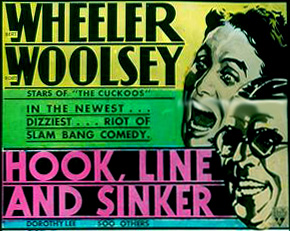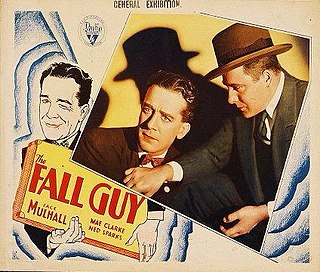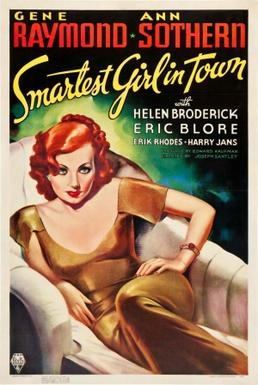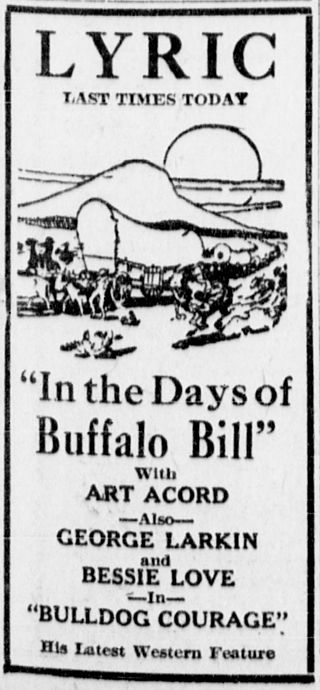
Charles John Holt, Jr. was an American motion picture actor who was prominent in both silent and sound movies, particularly Westerns.

A Son of His Father is a 1925 American silent Western film directed by Victor Fleming. The screenplay, by Anthony Coldeway, was based on Harold Bell Wright's novel. The film stars Bessie Love, Warner Baxter, Raymond Hatton, and Walter McGrail. It was produced by Famous Players–Lasky Corporation and distributed by Paramount Pictures.

Hook, Line and Sinker is a 1930 American pre-Code slapstick comedy directed by Edward F. Cline from a screenplay by Ralph Spence and Tim Whelan. It was the third starring vehicle for the comedy team of Wheeler & Woolsey, and also featured Dorothy Lee. It would be one of the largest financial successes for RKO Pictures in 1930.

Millie is a 1931 American pre-Code drama film directed by John Francis Dillon from a screenplay by Charles Kenyon and Ralph Morgan, based on a novel of the same name by Donald Henderson Clarke. The film was an independent production by Charles R. Rogers, distributed by RKO Radio Pictures, after their acquisition of Pathé Exchange. It stars Helen Twelvetrees in one of her best roles, with a supporting cast that includes Lilyan Tashman, James Hall, Joan Blondell, John Halliday and Anita Louise.

Lovey Mary is a 1926 American comedy-drama film directed by King Baggot, with Bessie Love in the title role. It is based on the 1903 novel of the same name by Alice Hegan Rice, a sequel to Rice's Mrs. Wiggs of the Cabbage Patch. It was distributed by Metro-Goldwyn-Mayer.
Down to Their Last Yacht is a 1934 comic adventure produced and distributed by RKO Pictures.

Sundown is a 1924 American silent Western film directed by Laurence Trimble and Harry O. Hoyt, produced and distributed by First National Pictures, and starring Bessie Love. Frances Marion, Marion Fairfax, and Kenneth B. Clarke wrote the screenplay based on an original screen story by Earl Hudson. This film was the only production cinematographer David Thompson ever worked on. This film is presumed lost.

On The Broad Stairway, from Edison Studios, was a 1913 American silent film (short) written and directed by J. Searle Dawley. The film was the second of three "Kate Kirby's Cases" detective tales produced in 1913 before Dawley and actress Laura Sawyer left Edison to continue the series later that year with the Famous Players Film Company. On The Broad Stairway was released in the United States on July 19, 1913.

Acquitted is a 1916 American silent mystery film produced by the Fine Arts Film Company and distributed by Triangle Film Corporation. Paul Powell directed a screenplay by Roy Somerville based on a 1907 short story by Mary Roberts Rinehart. Tod Browning served as an uncredited writer.

The Flying Torpedo is a 1916 American silent drama directed by John B. O'Brien and Christy Cabanne. It was produced by the Fine Arts Film Company and distributed by the Triangle Film Corporation. The film was written by John Emerson, Robert M. Baker and D. W. Griffith. The film is now considered lost.

Over the Garden Wall is a lost 1919 American silent romantic comedy film produced and distributed by the Vitagraph Company of America. It was directed by David Smith, brother of one of the Vitagraph founders Albert E. Smith. The film stars Bessie Love.

A Sister of Six is a 1916 American silent Western film produced by the Fine Arts Film Company and distributed by Triangle Film Corporation. The film was directed by brothers Chester M. and Sidney Franklin. This was Bessie Love's first starring role.

Those Who Dance is a 1930 American Pre-Code crime film produced and distributed by Warner Bros., directed by William Beaudine, and starring Monte Blue, Lila Lee, William "Stage" Boyd and Betty Compson. It is a remake of the 1924 silent film Those Who Dance starring Bessie Love and Blanche Sweet. The story, written by George Kibbe Turner, was based on events that occurred among gangsters in Chicago.

Sin Takes a Holiday is a 1930 American pre-Code romantic comedy film, directed by Paul L. Stein, from a screenplay by Horace Jackson, based on a story by Robert Milton and Dorothy Cairns. It starred Constance Bennett, Kenneth MacKenna, and Basil Rathbone. Originally produced by Pathé Exchange and released in 1930, it was part of the takeover package when RKO Pictures acquired Pathé that year; it was re-released by RKO in 1931.

Dance Hall is a 1929 American pre-Code musical film directed by Melville Brown and written by Jane Murfin and J. Walter Ruben, based on the short story of the same name by Vina Delmar. The film centers a love triangle with a shipping clerk competing with a dashing aviator for the affections of a young taxi dancer. It was Radio Pictures' second to last release of the decade, and was a critical and financial flop.

The Fall Guy is a 1930 American pre-Code crime drama film directed by Leslie Pearce and adapted for the screen by Tim Whelan. Based on the 1925 Broadway hit The Fall Guy, a Comedy in Three Acts, which was written by George Abbott and James Gleason, the RKO production stars Jack Mulhall, Pat O'Malley, and Mae Clarke. The year after this film's release, Clarke would become famous as a result of her minor role in another crime drama, The Public Enemy, in which James Cagney shoves a grapefruit into her face.

Smartest Girl in Town is a 1936 American comedy film directed by Joseph Santley, written by Viola Brothers Shore, and starring Gene Raymond, Ann Sothern, Helen Broderick, Eric Blore, Erik Rhodes and Harry Jans. It was released on November 27, 1936, by RKO Pictures.

The Conspiracy is a 1914 American drama silent film directed by Allan Dwan and adapted from the Robert M. Baker and John Emerson play of the same name. The film stars John Emerson, Lois Meredith, Harold Lockwood, Iva Shepard, Francis Byrne and Hal Clarendon. The film was released on December 10, 1914, by Paramount Pictures.

Bulldog Courage is a 1922 American silent Western film directed by Edward A. Kull, and starring George Larkin and Bessie Love. It was written by Larkin and his wife Ollie Kirkby, with a screenplay by Jeanne Poe. It was produced by Russell Productions and distributed by State Rights.


















